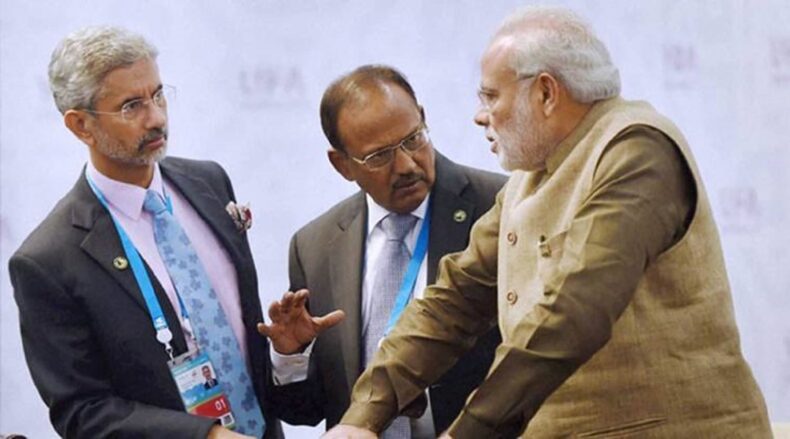With the brink of Amrut Kaal i.e. the 25 years to the Century of Independence India is on the way to expanding and laying its soft power diplomacy all over the world but in today’s time there lies a threat in everything as the price of Development costs enormous risks security threats
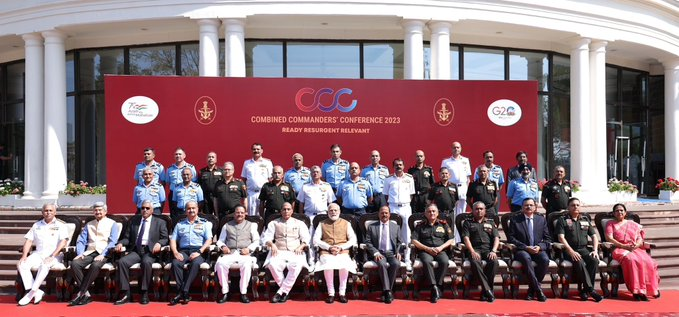
The dangers and issues the nation confronts and resolves impact the daily evolution of society in the nation and the development of its population; without remedies and a strong deterrent, no civilisation could emerge. Previously, the entire world’s attention was directed towards events and activities taking place in the USA, but today, the same situation is occurring in India, where everything from key policy decisions to the choice of the nation’s leader has been closely watched by the West, East, North, and their allies.
Prime minister Narendra Modi views on India’s Security Threats
Speaking to the Combined Military Commanders’ Conference on April 1, 2024, in Bhopal, Hon’ble Prime Minister Sh Narendra Modi said that they should be prepared to combat new and developing Security Threats. He reaffirmed that the Indian government is making every effort to provide India’s armed forces with the necessary equipment. He acknowledged the crucial role the armed forces play in nation-building and in providing humanitarian aid and disaster relief (HADR) for many nations, as well as for India itself. India’s senior military officials gather every two years for this joint military conference to examine various challenges to national security.
The PM also examined the security situation and the Armed Forces’ operational preparedness. General Anil Chouhan, the Chief of Defence Staff, briefed him. The conversation focused mostly on significant topics such as Theaterisation, Data digitization, Agniveers’ inclusion, Cyber security, Social media concerns, and Self-reliance in defence.
The conference’s scope was enlarged this year, which was a noteworthy step. A few complex and interactive sessions were held, and several members of the armed forces took part in these talks. The troops were asked for feedback on a variety of topics, including adjustments that needed to be made to several tactics, methods, and procedures. These concerns were discussed. The conference’s theme this time around was “Ready, Resurgent, Relevant.“
The continuing crisis between Ukraine and Russia and the confrontations between India and China at the Line of Actual Control (LAC) in eastern Ladakh served as the backdrop for this year’s conference. India is faced with several internal and foreign national security issues. Significant national security concerns in India include:
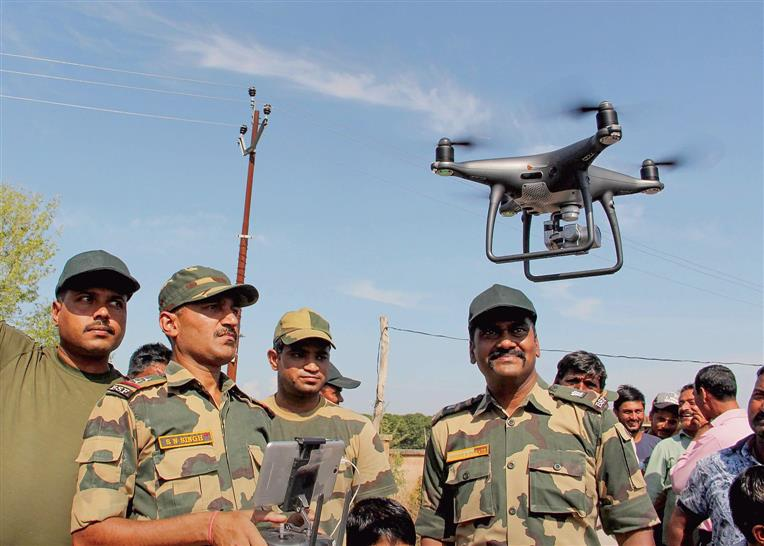
Terrorism: Both internal and foreign terrorist organisations have carried out attempts against India over a long time. Particularly in regions like Jammu and Kashmir, where terrorist organisations with support from Pakistan continue to operate, the threat of terrorism remains a serious national security worry.
Boundary Issues: India has boundaries with several nations, and disagreements over these borders have sparked hostilities. These disagreements with Pakistan and China are the most heated ones.
Cybersecurity: As our reliance on technology and the internet grows, it is becoming a serious national security issue. India is particularly susceptible to cyber assaults because of its large population of internet users and expanding IT industry.
Internal Security: Threats to India’s internal security include organised crime, racial and religious strife, and insurgent movements. Areas like Jammu and Kashmir, the Northeastern provinces, and several regions of central India are particularly vulnerable to these dangers.
Economic Security: Threats to India’s financial stability, such as inflation, corruption, and economic espionage, pose serious hazards. India’s economy is a key component of its national security.
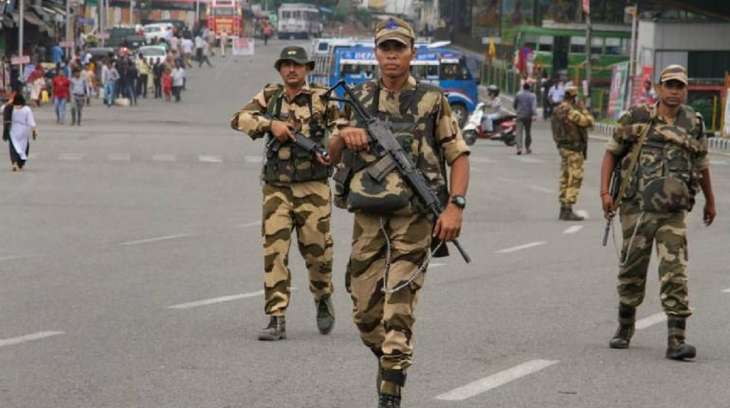
The government, the military, and other security services must take a holistic and coordinated strategy to solve the complex national security issues that India is now facing. The current geopolitical environment is dynamic and complicated, with several important trends and challenges influencing the global scene. The following are some of the important variables that are now affecting the geopolitical environment:
Competition of Power: One of the most important factors influencing the current geopolitical environment is the competition between the United States and China, known as the “Great Power Competition.” As China rises to prominence on the world stage, it challenges American hegemony in some areas, including the Indo-Pacific.
Regional Wars: The geopolitical situation is being impacted by many current regional wars, including the conflict in Ukraine, the Israel-Palestine conflicts, and the Syrian crisis.
Growth of Nationalism: In many nations, nationalism and populism are on the rise, causing tensions and conflicts both inside and between countries. In Europe, where right-wing populist groups have lately gained power, this tendency is particularly obvious.
Climate Change: As nations compete for resources, contend with migrant flows, and cope with the effects of catastrophic weather events, climate change poses a danger to global stability and is expected to increase already-existing geopolitical conflicts.
Pandemic Response: The COVID-19 pandemic has had a tremendous influence on geopolitics, with nations vying for access to drugs and vaccinations and the state of the world economy still being undetermined.
In summary, the current geopolitical environment is marked by several substantial difficulties and uncertainties, including the continued rivalry between great powers, regional wars, and international dangers like pandemics and climate change. Every citizen of this country, regardless of occupation, is extremely and deeply concerned about threats to the nation’s security, not only the members of the armed forces or the political leadership. Every citizen must be aware of these dangers, their growth, and their implications. Those charged with the duty of establishing preparations to address security concerns must thoroughly study and monitor them.
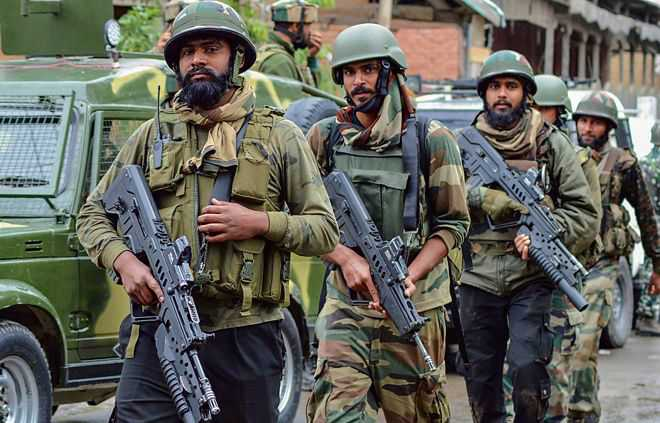
History teaches us that there is no room for negligence when it comes to maintaining national security and integrity. We frequently become relaxed due to ongoing favourable security circumstances and our bilateral relationships with other countries, which gives us a false feeling of security. Such a positive feeling could be fleeting and unreliable in the face of volatile and changing geopolitics. Moreover, shocks and surprises have high costs. Thus, it is essential to conduct a realistic threat assessment of national security and to take prompt action to close any gaps.
It is stated that having a complete and adequate defence capability serves as a deterrent to any armed confrontation. To confront and eliminate any security danger, it is necessary.
In addition to serving as a deterrent, this obligation to pay should also apply to any future attempts to undermine the integrity and sovereignty of our country. If our attacker is deterred by our defence preparation, then it is successful; otherwise, it is ineffective. The Armed Forces in India ultimately represent national authority since they guarantee protection from any external danger.







